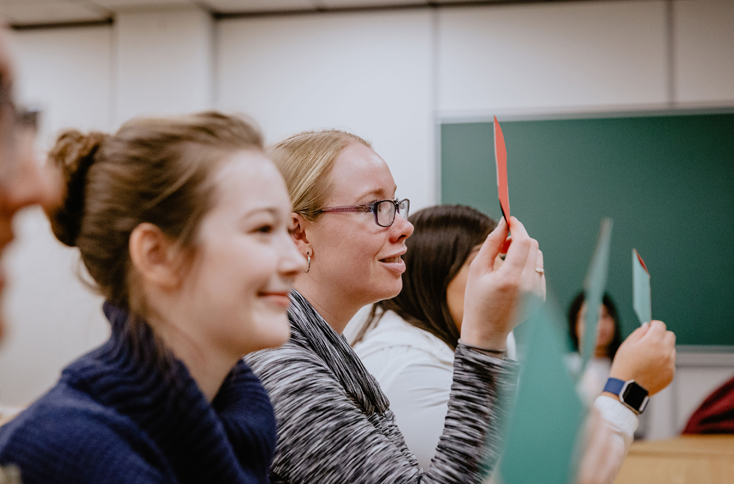
Community Service Worker Diploma

The Community Service Worker diploma program at JRS College of Business and Health Care Inc. prepares students for a career in the field of social services. This program is designed to provide students with the skills they require to secure employment in community agencies, residential facilities, mental health agencies, adult & youth group homes and rehabilitation centers. This practicum arranged by JRS College of Business and Health Care Inc. for our students will be an asset to their career.
Curriculum
To understand the social determinants of thoughts, feelings, and actions it is necessary to explore the role of social forces, that is, the role of society, social relations, social institutions, and the process of socialization in shaping human psychology and conduct. Since every individual is born into a pre-existing society, it seems reasonable that an introduction to the social sciences begins with a presentation of basic sociological concepts, theories, and principles, and how these may be applied toward an understanding of the individuals place in the social world.
This is an introductory course that will explore the key principles and skills of interpersonal communication. Students will be encouraged to explore the impact of personal communication style and the factors that shape interpersonal communication in personal and professional relationships. As a pre-requisite to interviewing and assessing clients, this course focuses on growth in self-awareness, basic communication skills, and aspects of the worker/client relationship. Further, students well be analyzing the use of technology in personal and professional environments. Students will be introduced to interpersonal communication through an anti-oppressive, trauma-informed, and strength-based lens to promote ally-ship, self-worth, and self-determination with diverse populations.
By relying on an anti-oppression framework, this course will invite students to explore the various forms of individual, cultural and systemic discrimination experienced by diverse groups of people in Canada. This course challenges students to use an integrative anti-oppression framework as well as an access and equity analysis to develop their own reflective practice (AWARENESS). The foundation of this course is in social justice and the belief that understanding the systemic contexts of identities and culture and critically examining ones own social locations in the web of these power relations is of paramount significance for (helping professionals) to engage meaningfully with people of different and multiple identifications? (Wong, 2004). This course will also ask students to examine their PRACTICE, both personally and professionally. The concept of ally ship will be threaded throughout the course so students can immediately begin their anti- oppressive practice. A main objective of the course is for students to practice in this way in their work with clients.
This course is designed to provide an overview of the Canadian social welfare system from a historical and contemporary perspective and explores the ideology and values underlying the development of social welfare policies and programs. This course explores the social welfare landscape in Canada as it applies to a broad group of vulnerable populations (for example, children, First Nations? communities, families, unemployed, immigrants, and the elderly). It includes, for example, how ideology influences social policy, and shows that economic policy is social policy and vice versa.
SSW 312 builds upon SSW 101 and SSW 212 and gives students the opportunity to further develop their interpersonal communication, interviewing, and counselling skills. Students practice the 5-Stage Counselling Model and advanced micro skills from a trauma-informed, anti-oppressive, and strength-based perspective. Students learn to recognize signs of distress in clients and basic crisis intervention tools. In addition, emphasis is placed on self-awareness, professional learning and growth, and the importance of self-care.
This course is designed to provide students with an introduction to both, traditional case management skills and empowerment-oriented service coordination skills. Both perspectives and skill types are utilized in the helping professions when performing case work services for clients/allies and communities. Service Coordinators are often required to:
- identify client strengths and needs,
- develop goals and a plan with the client,
- identify available resources for which the client is eligible,
- link and coordinate services,
- monitor client progress, close or discharge files, and
- provide direct services to diverse populations in a variety of agency settings with limited resources.
SSW 212 prepares students for intentional and meaningful conversations with service users. This course focuses on enhancing student’s self-awareness as a helper as well as learning the 5-stage interviewing model, basic micro skills, and principles of social service work practice. Students apply their knowledge through skill-based activities and role-play scenarios. All interviewing is expected to follow an anti-oppressive, trauma-informed, and strength-based framework to promote resilience and ally-ship with diverse populations.
The course will examine the multiple variations in the structures of families as well as the changing role of the family today. Students will learn about healthy and less health characteristics of family functioning. Various styles and problems of modern family living are explored. Gender, ethnicity, culture, privilege, and social location and their impact on families are examined to equip students to work from an anti-oppressive, trauma-informed perspective with diverse families. An examination of First Nation, Inuit, and Metis (FNIM) families will provide knowledge and understanding of FNIM worldviews, and practices that promote cultural competence and cultural safety. Students will learn how to articulate the importance of developing and delivering services and programs that are culturally compatible. The implications of social location and anti-oppressive practice will be studied in service delivery and case planning.
Field placement is a laboratory for students in the placement setting. The student learns the philosophy, function, procedures, strengths, and limitations of Social Service Work Practice in a social service setting. In addition, they learn to become part of a service team, and learn to meet the needs of people serviced by the agency
